Uncategorized
Police ask court to stop #EndSARS probe panels

The Nigeria Police Force has headed to the Federal High Court in Abuja asking for an order stopping the judicial panels of enquiry probing allegations of rights abuses and other acts of brutality of the disbanded Special Anti-Robbery Squad and other police tactical units.
It stated the state governments lacked the power to constitute the panels to investigate activities of the police force and its officials in the conduct of their statutory duties.
It therefore urged the court to restrain the attorneys-general of the 36 states of the federation and their various panels of enquiry from going ahead with the probe of alleged police impunity.
About 104 were named as defendants by the NPF and they comprise the Attorney-General of the Federation, the National Human Rights Commission which set up the Independent Investigative Panel sitting in Abuja, the Attorneys-General of the states, and chairmen of the states’ panels.
The decision to set up the various panels of enquiry was taken by the National Economic Council with members including the 36 state governors and Vice President Yemi Osinbajo, in the aftermath of the recent nationwide #EndSARS protests demanding an end to police brutality.
The NPF argued through its lawyer, Mr O. M. Atoyebi (SAN) that the state governments lacked the power to constitute the panels to investigate activities of the police force and its officials in the conduct of their statutory duties.
According to the plaintiff, the state governments’ decision to set up such panels violated the provisions of section 241(1)(2)(a) and Item 45, Part 1, First Schedule to the Constitution and Section 21 of the Tribunals of Inquiry Act.
It argued that by virtue of the provisions of 241(1)(2)(a) and Item 45, Part 1, First Schedule to the Nigerian Constitution only the Federal Government had exclusive power to “organise, control and administer the Nigeria Police Force”.
It, therefore, urged to, among others, declare that “the establishment of a panel of enquiries by the governors of the various states of the federation of Nigeria, to inquire into the activities of the Nigeria Police Force in relation to the discharge of her statutory duties is a gross violation of the provisions of Section 241 (1)(2) (a) and Item 45, Part 1, First schedule, 1999 Constitution of the Federal Republic of Nigeria (as amended) and Section 21 of the tribunals of inquiry Act, Cap.T21, Laws of the Federation of Nigeria, 2004”.
The plaintiff also urged the court to declare that “having regard to the circumstances of this case, the attitude of the governors of the various states of the Federation of Nigeria, in this case, is unconstitutional, illegal, null and void and of no effect whatsoever.”
It sought an order of perpetual injunction restraining the 3rd to 38th defendants (the state Attorneys-General of the 36 states) “from making or conducting any investigations, sittings, and inquiries and/or from making or conducting any further investigations, sittings and inquiries in respect of matters affecting the Nigeria Police Force, and or further setting up any panel of inquiry in any state whatsoever in the country.”
Uncategorized
Nigeria saves $20bn from subsidy removal – Finance Minister Edun
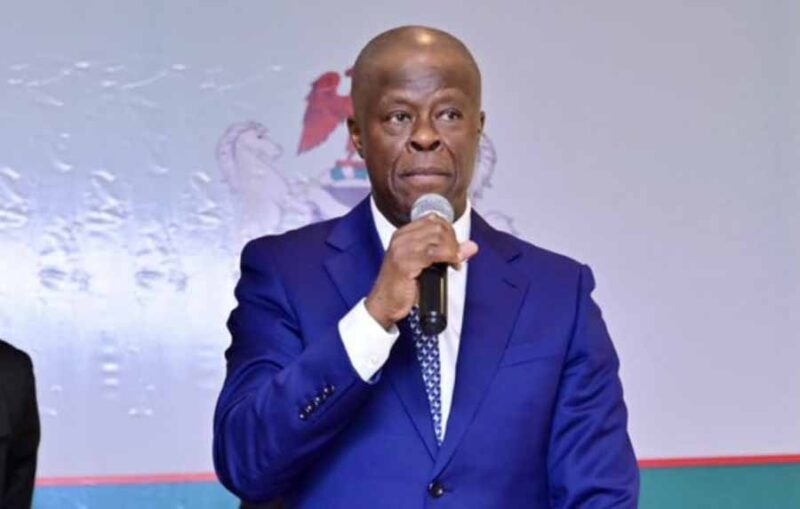
Nigeria saves $20bn from subsidy removal – Finance Minister Edun
Wale Edun, Nigeria’s Minister of Finance and Coordinating Minister of the Economy, has declared that the country has saved $20 billion by eliminating the petrol subsidy and adopting market-based foreign exchange pricing.
He made this disclosure at an event in Abuja marking the first 100 days in office of Esther Walso-Jack, Head of the Civil Service of the Federation.
Edun stated, “When there was a subsidy on the PMS and on foreign exchange, they collectively cost five percent of the GDP.
“Assuming GDP was $400 billion on average, five percent of that is $20 billion—funds that could now go into infrastructure, health, social services, and education.”
He explained that the savings were being redirected into developmental projects. He said, “The real change is that no one can wake up and target cheap funding or forex from the central bank to enrich themselves without adding value. “Similarly, profiteering from the inefficient petrol subsidy regime is no longer possible.”
President Bola Tinubu officially ended the petrol subsidy regime on May 29, 2023.
metro
Crude-for-naira deal: NNPC fails to deliver agreed crude oil – Dangote refinery
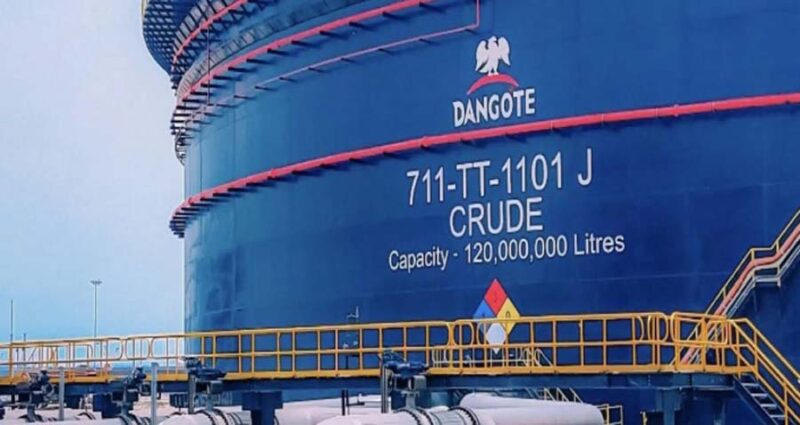
Crude-for-naira deal: NNPC fails to deliver agreed crude oil – Dangote refinery
The Lagos-based mega Dangote refinery has accused the Nigerian National Petroleum Corporation (NNPC) of failing to meet its crude oil supply obligations under the naira-for-crude agreement.
Edwin Devakumar, the Vice President of the Dangote Group, disclosed this in a statement reported by Reuters.
Devakumar explained that the national oil company had committed to supplying the refinery with a minimum of 385,000 barrels per day (bpd) under the crude-for-naira deal.
READ ALSO:
- Eight Ogun teenagers gang-rape 14-year-old girl
- Netanyahu: Italy, Canada, others to enforce ICC arrest warrants against Israeli PM
- Nigerian Army has pursued Lakaruwa terrorists to Niger Republic – Senator Aliero
However, he alleged that the NNPC is falling short of this commitment.
According to Reuters, Devakumar characterized the volume of crude currently supplied by NNPC Limited as “peanut,” though he did not specify the exact amount.
“We need 650,000 barrels per day, and NNPC Ltd agreed to supply a minimum of 385,000 bpd, but they are not even delivering that,” Devakumar stated.
Crude-for-naira deal: NNPC fails to deliver agreed crude oil – Dangote refinery
News
Tinubu restructures media team, says no individual presidential spokesman

Tinubu restructures media team, says no individual presidential spokesman
President Bola Tinubu has reorganised his media team, re-designating the positions of his two recently appointed special advisers for media and communications.
This is contained in a statement released on Monday night by his Special Adviser on Media and Strategies, Bayo Onanuga.
He said Sunday Dare, the special adviser on public communication and national orientation, is now the special adviser on media and public communications.
Onanuga added that Daniel Bwala, announced last week as a special adviser on media and public communication, will now function as the special adviser on policy communication.
“These appointments, along with the existing role of special adviser, information and strategy, underscore that there is no single individual spokesperson for the presidency,” the statement read.
There had been some confusion as Onanuga, designated as special adviser on communication and strategy, had been the presidential spokesman since the exit of Ngelale Ajuri, who was special adviser on media and publicity.
However, on Monday, Bwala announced himself as the presidential spokesperson.
“Today, I resumed officially as the Special Adviser, Media and Public Communications/Spokesperson (State House). I am happy to have joined a meeting of the robust and fantastic communication team of Mr. President. I love the existing unity among the team and hope we can leverage on that even for more synergy,” he wrote on his X handle.
-

 metro21 hours ago
metro21 hours agoBREAKING: Port Harcourt refinery begins operation
-

 Business3 days ago
Business3 days agoJust in: Dangote refinery reduces petrol price for marketers
-

 metro2 days ago
metro2 days ago40-foot container falls on car in Lagos
-
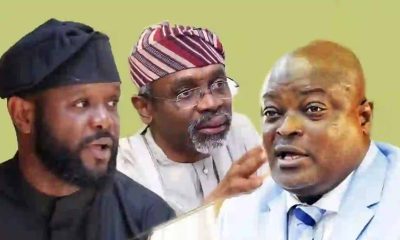
 Politics3 days ago
Politics3 days ago2027: Lagos Speaker, Obasa joins gov race, may battle Seyi Tinubu, others
-

 Politics2 days ago
Politics2 days agoLagos 2027: Seyi Tinubu campaign team releases his life documentary
-

 International2 days ago
International2 days agoTrump to sack 15,000 transgender officers from U.S. military: Report
-

 Entertainment2 days ago
Entertainment2 days agoPolygamy best form of marriage for Africa – Okey Bakassi
-

 Education13 hours ago
Education13 hours agoUS University opens 2025 scholarships for international students

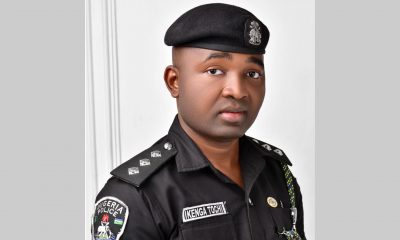

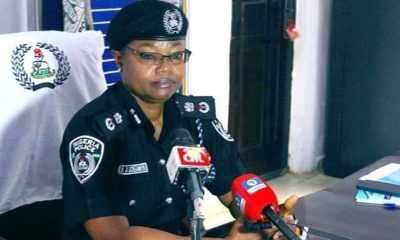

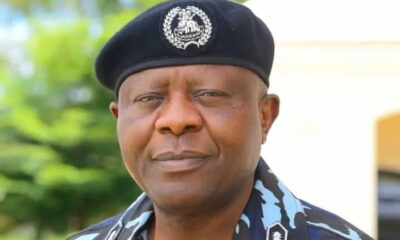

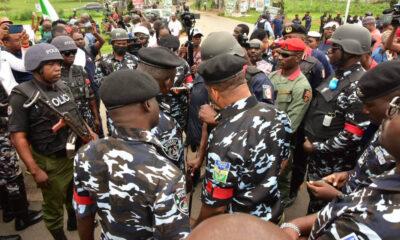

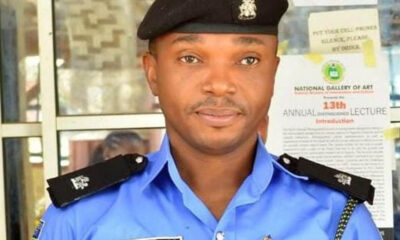





You must be logged in to post a comment Login